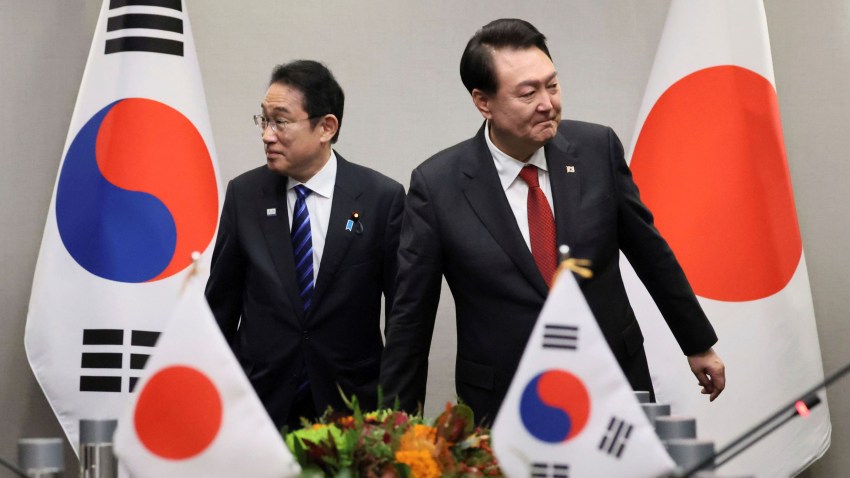In August 2023, Japan, South Korea and the United States signed the Camp David Principles, a set of documents intended to deepen and institutionalize trilateral cooperation. The principles are an achievement for having broadened the three countries’ engagement not just on defense issues—including deepening consultations and information-sharing in times of crisis and implementing trilateral military exercises—but also on commercial and industrial relations, such as coordination on development assistance in the Indo-Pacific, particularly regarding carbon-neutral technologies and supply-chain resilience.
But whether these agreements can endure will depend on domestic politics in Japan and especially South Korea, and not least of all whether their disputes over historical issues, which have been so central in preventing cooperation from taking root in the past, can be overcome.
Japan and South Korea’s dispute over historical issues that date back to the World War II era can be perplexing to outsiders, but they go to the heart of each country’s postwar identity. For Japan, that means turning the page on its imperialist past. For South Korea, it means finally being “made whole” after a devastating experience with Japanese colonization that led to a national fracture that persists to this day. While that doesn’t preclude the possibility of diplomatic agreements like the latest one signed in Camp David, it sets a much higher degree of difficulty for reaching and maintaining them.

